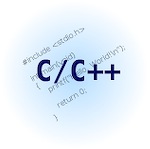
Today started out badly. I get to the Naperville Metra train station on time (4:30 am), and they aren't running the trains this morning. At least not yet. Seems there's a freight train that's in the way of all the commuter lines and nothing is leaving Aurora on the way to Chicago. Since I'm not about to want up Liza to take me downtown, and I'm not about to drive myself, it's time to settle in for a little delay.
I had no idea it would be 90 minutes before we'd see a train!
When it arrived, the people who were waiting less time than I had been waiting, decided it was time to play NBA, and started throwing elbows to get on the train. It's an amazing display of a complete lack of decency, which is why I like catching the early train as it's at least got decent people. I guess getting up that early, you appreciate what it takes for others to do the same, and you are a little more respectful of your fellow man.
So over 90 mins late, I arrive at The Shop, and I'm settling in. Trying to put my day back on track, and get into the swing of things so I can forget about this horrible commute.
In general, things are going well until I have to get in on a phone call with the lead developer for another group. This call is about the fact that in order to save space and make comparisons easy, virtually all of the floating point numbers in the system are available as doubles and as integers - signed or unsigned, as the case may be. The decimal representation in an integer is pretty easy - just multiply by a constant and then you have a fixed-precision decimal number. Easy.
So about six or seven months ago, I was building exchange data feeds, and we needed to identify the instruments in a way that allowed the value to be generated at the source - regardless of the instrument. This precluded the existing method which was a database IDENTITY column value that needed to have a stored procedure run if a value didn't exist for a given instrument. This database dependency was horrible, and that's why I invented the SecurityID and SecurityKey. The ID is a 128-bit number that packs in all the details of the instrument in a 128-bit number, based on the UUID, that is suitable for putting in tables, hashes, etc. The Key is a string representation of the same information, and the SecurityID class can take a Key in it's constructor, and generate a Key from a toString() method.
Since OSI came into being, the strike has been a decimalized integer with an offset of 1000. That's what they say, plain and simple. In my SecurityID, I decided to use the same thing so that I could accurately represent any strike without wasting space - after all, I know had 128 bits.
The point of this is that I defined it for the feeds.
Fast-forward to today.
I wrote the C++ classes and gave them to the Java developers for their conversion. I could have written it in Java as well, but they wanted to do the conversion. Turns out, they can't read code to save their lives. They implemented it completely wrong, and yet never asked for verification of the information. They didn't even check the SecurityKeys (string representations) to make sure they were equivalent.
So today this lead developer asks about the decimal multiplier for the strike. They chose to use 104 for all their decimal numbers, and even though this should be an easy conversion for them if they extract the strike from the SecurityID, they wanted the multiplier in the SecurityID to be the same as theirs -- as opposed to the value it's been defined to be for more than 6 months.
The catch was, they already built a lot of code based on this "implementation" they had, and rather than fix it, or correct it, they wanted us to change it. I immediately knew I was messed over because in this place, expediency wins out over everything else. The existing code - forget that they had something to work with for months - forget that they should not have been hitting the SecurityID for the strike in more than one place in the code int he first place - all that mattered was that I now appeared to be asking them to change.
So I had to change instead.
I was silent, for I knew there's nothing I could do or say to change the facts. This was going to be something I had to change. But I'd change it on my terms.
The multiplier was still 1000, but when you asked for the integer value of the strike, it'd add that extra factor of 10 for them. In the string representation, we weren't going to leave it an integer, for it might be OK to look at O:AAPL:20111022:365000:P and know what it was, doing so for another factor of ten on the strike was too much. So I went decimal on the strike, and told them this is what we're doing and why.
I feel that O:AAPL:20111022:345.00:C makes it very clear what the individual components are and what the value of the strike is. If there's a need for the third decimal digit to the right of the decimal point, it will be there, but if it's a zero, then it's drooped. I made the changes to my code, and then had to retrofit it into my Greek Engine and the Ticker Plants.
But wait, there's more…
When my co-worker and I went to tell our boss about this, I was very quiet about the situation because I knew my opinions and feelings had no relevance to this issue, and in fact, were counter-productive to getting things done quickly and efficiently. I could, and would, write the code, but I wasn't going to like it, and I certainly wasn't going to appreciate the way in which this was handled.
After the situation was explained, my boss asked me "What do you think, Bob?"
"My thoughts on this would be counter-productive at this point." I said.
"No, really, what do you think" he reiterated.
"Really. Seriously. They'd be counter-productive" I tried to stress.
"He's right", my co-worker chimed in. "They'd be counter-productive."
"No, really, what are they?"
And so I started to tell him. I was trying to stay a little on the humorous side, but there was no way to hide the fact that I was not happy with the fact of what was happening and why. Midway in this tiny rant he puts up his hands and says "Wow! Bob! I get it!"
Here's the thing: If you don't want to hear the uncomfortable answer, then just don't ask! If you do, then at least be courteous enough to shut up and listen! To forcibly ask me to answer a question that I've already said would be "counter-productive" and then not listen to the answer is, in my opinion, unkind.
Ask or not. But if you ask, listen.
It's then when I came back to my desk and just wanted to scream. But I wrote code instead, and that's what I have to focus on: I write code. I create. The rest of this is lunacy. Stay focused.





